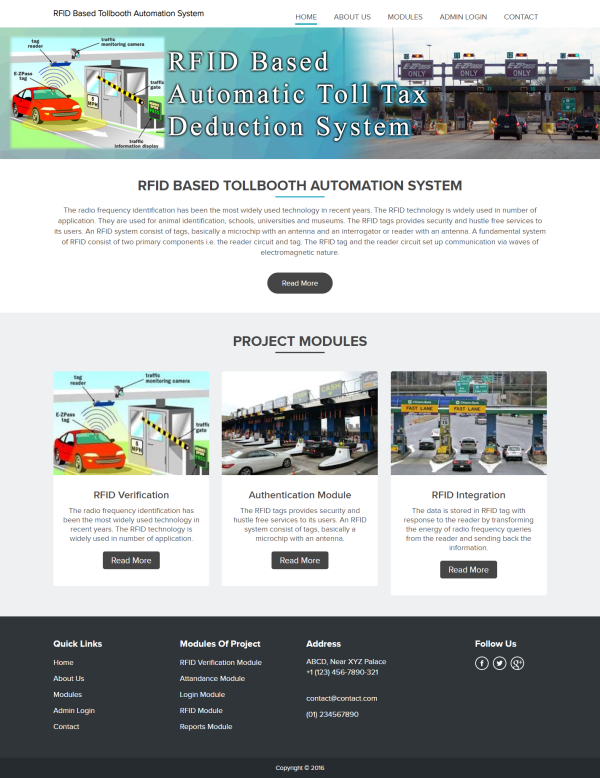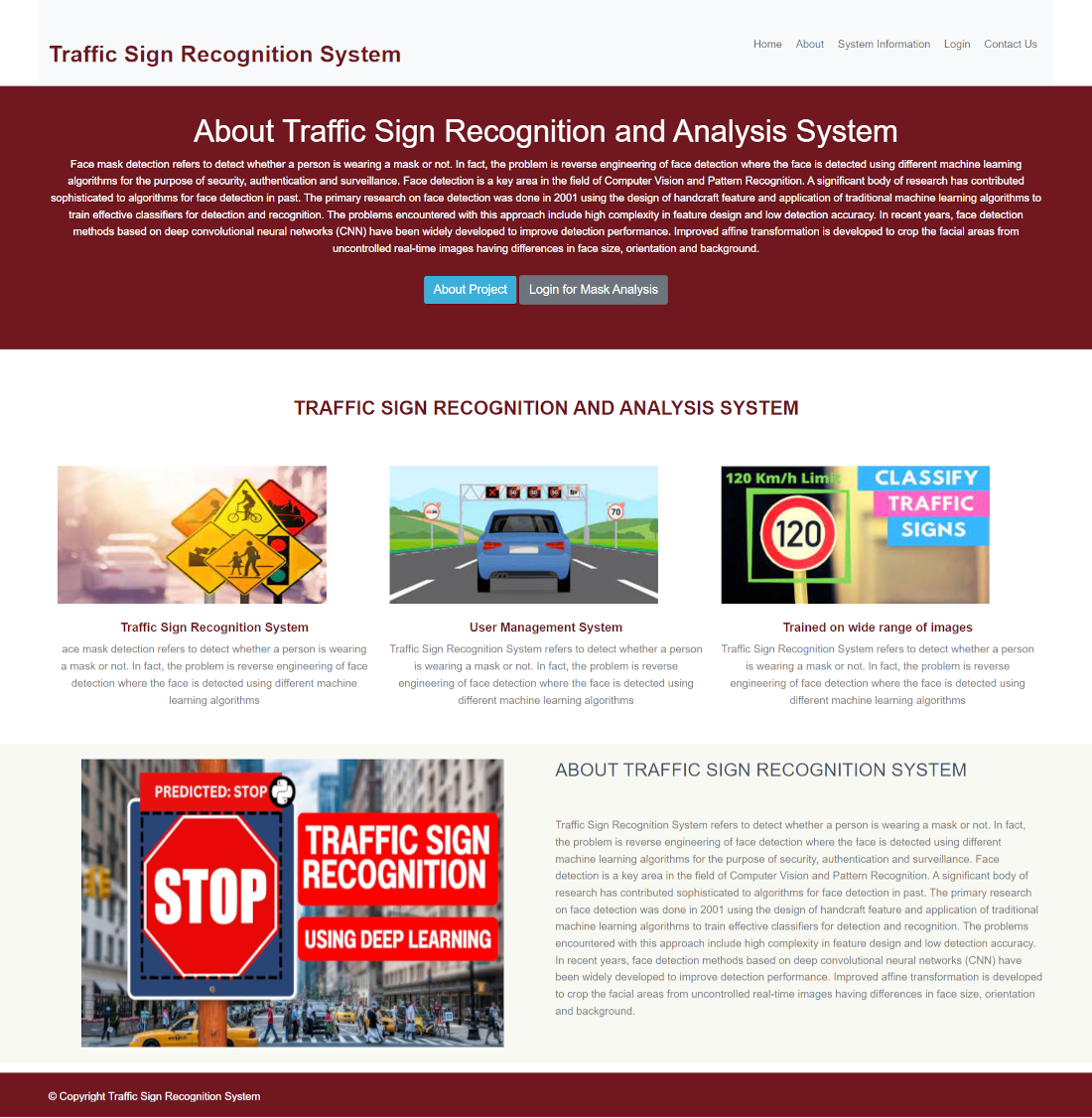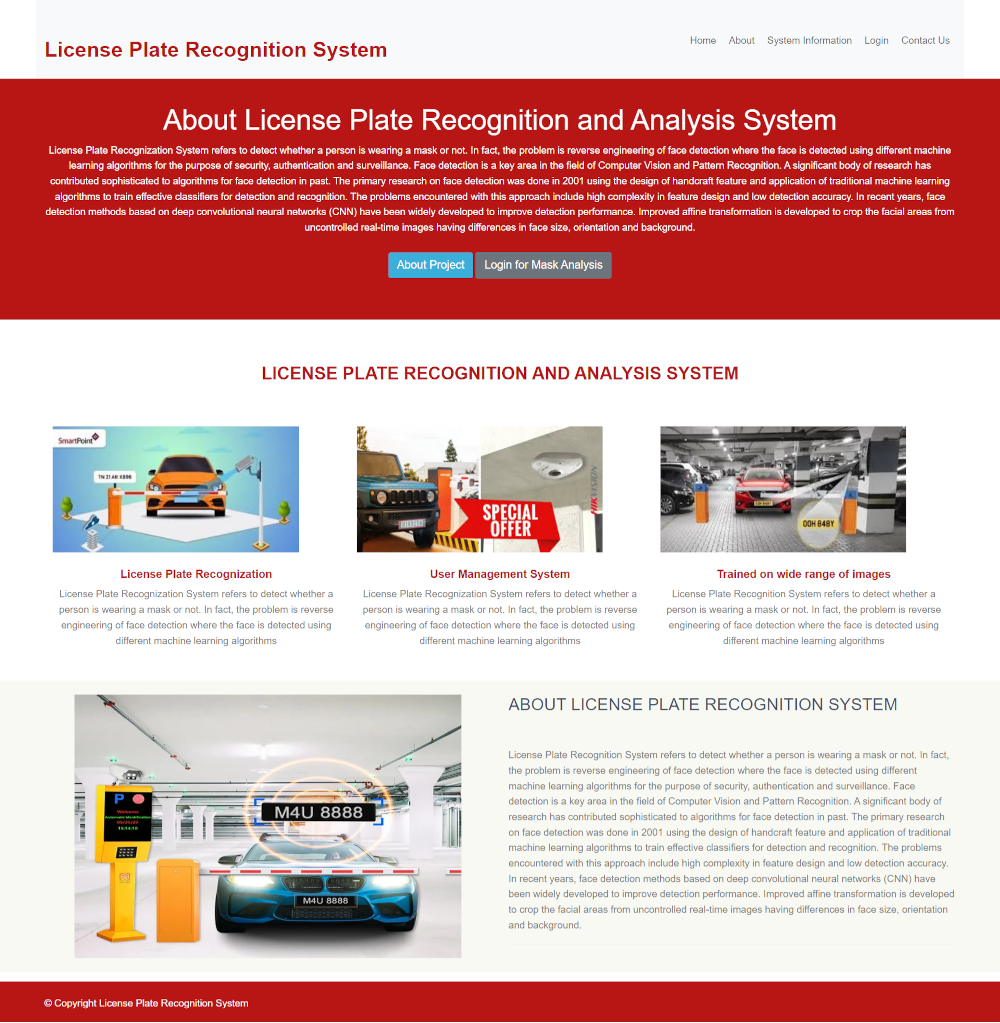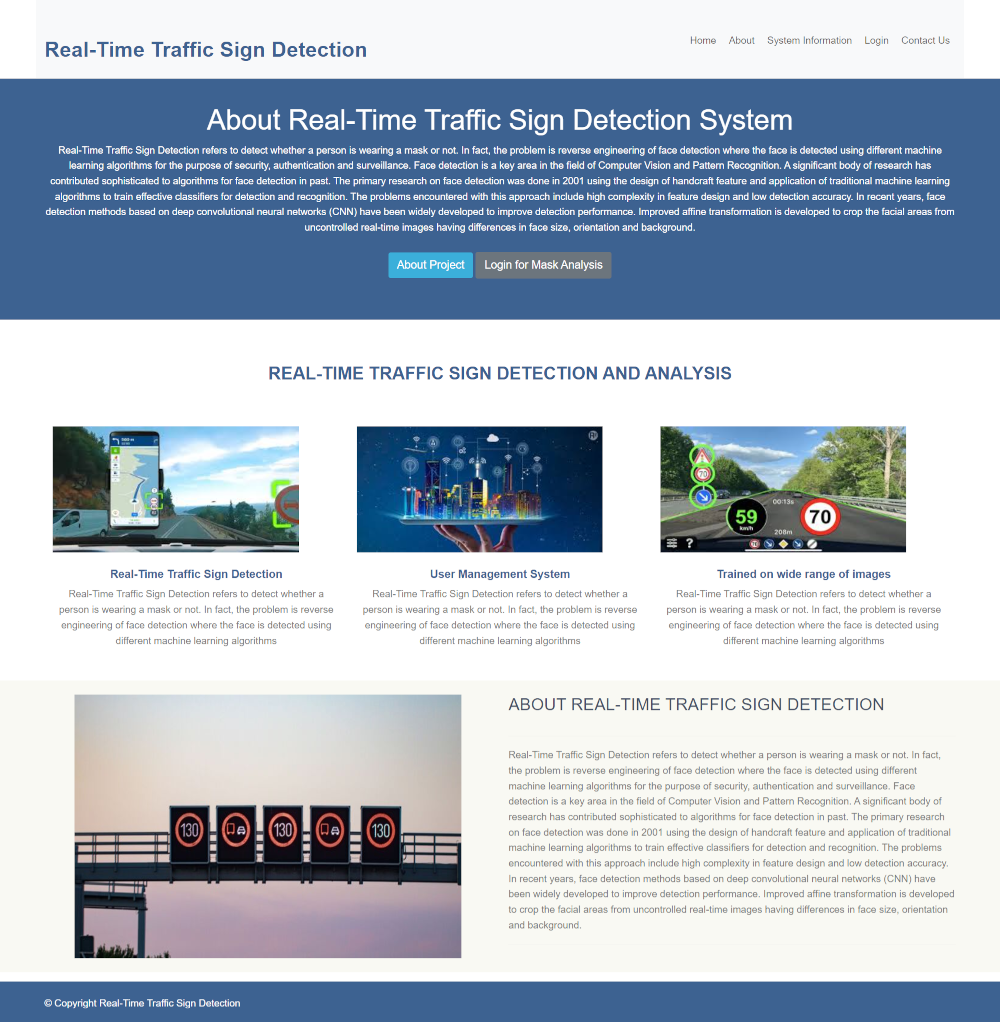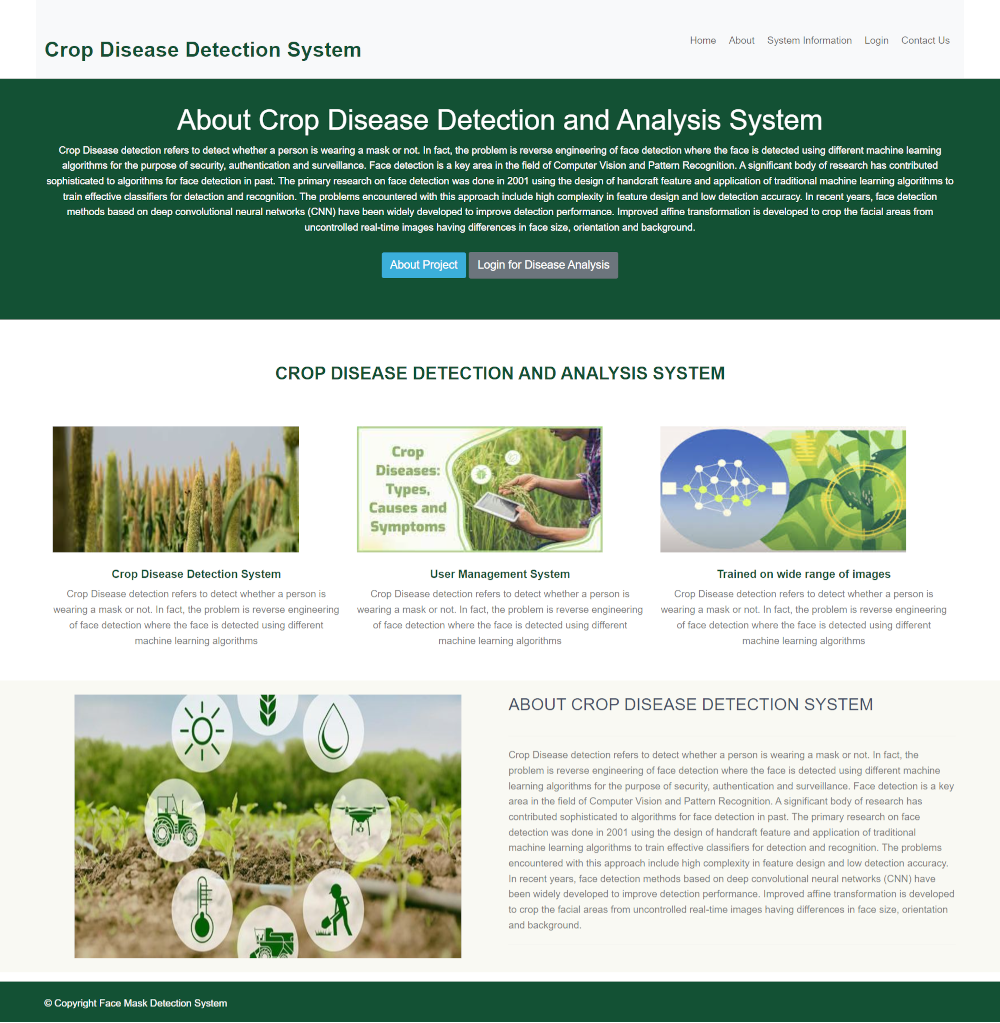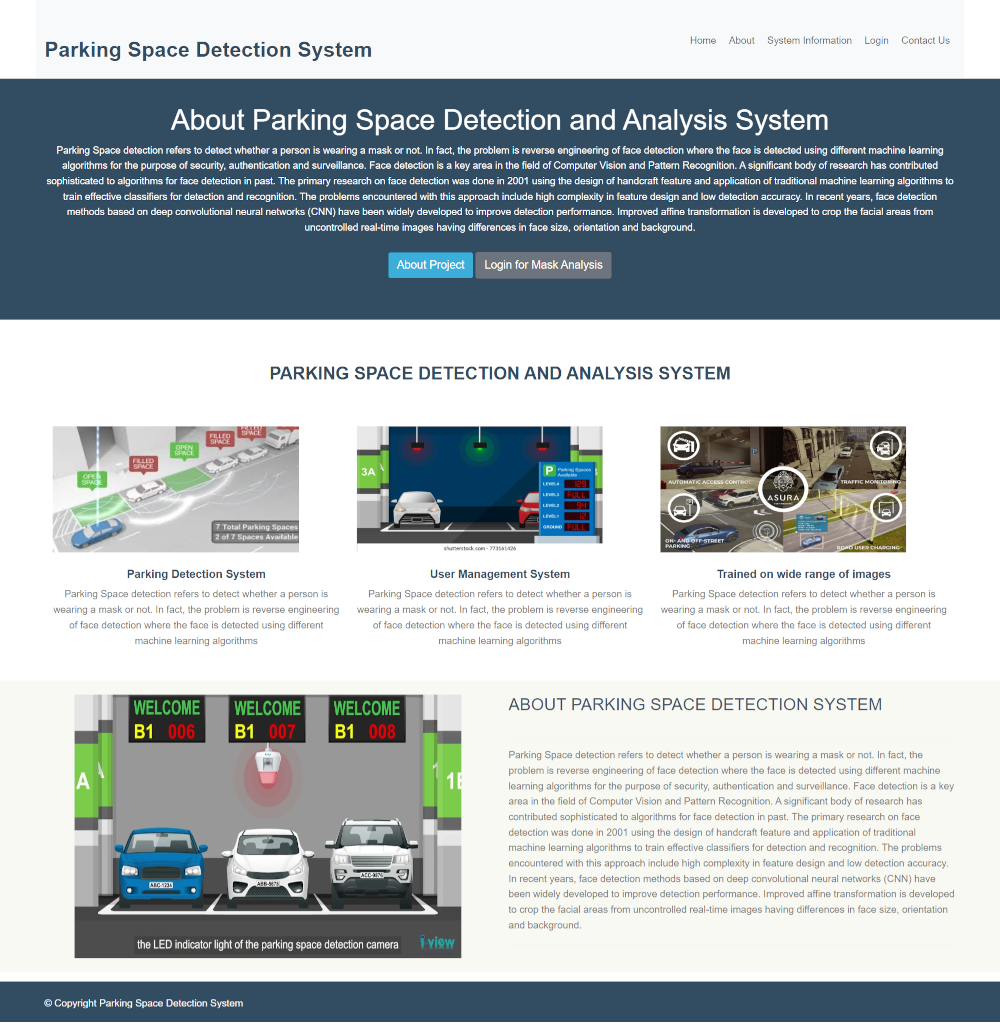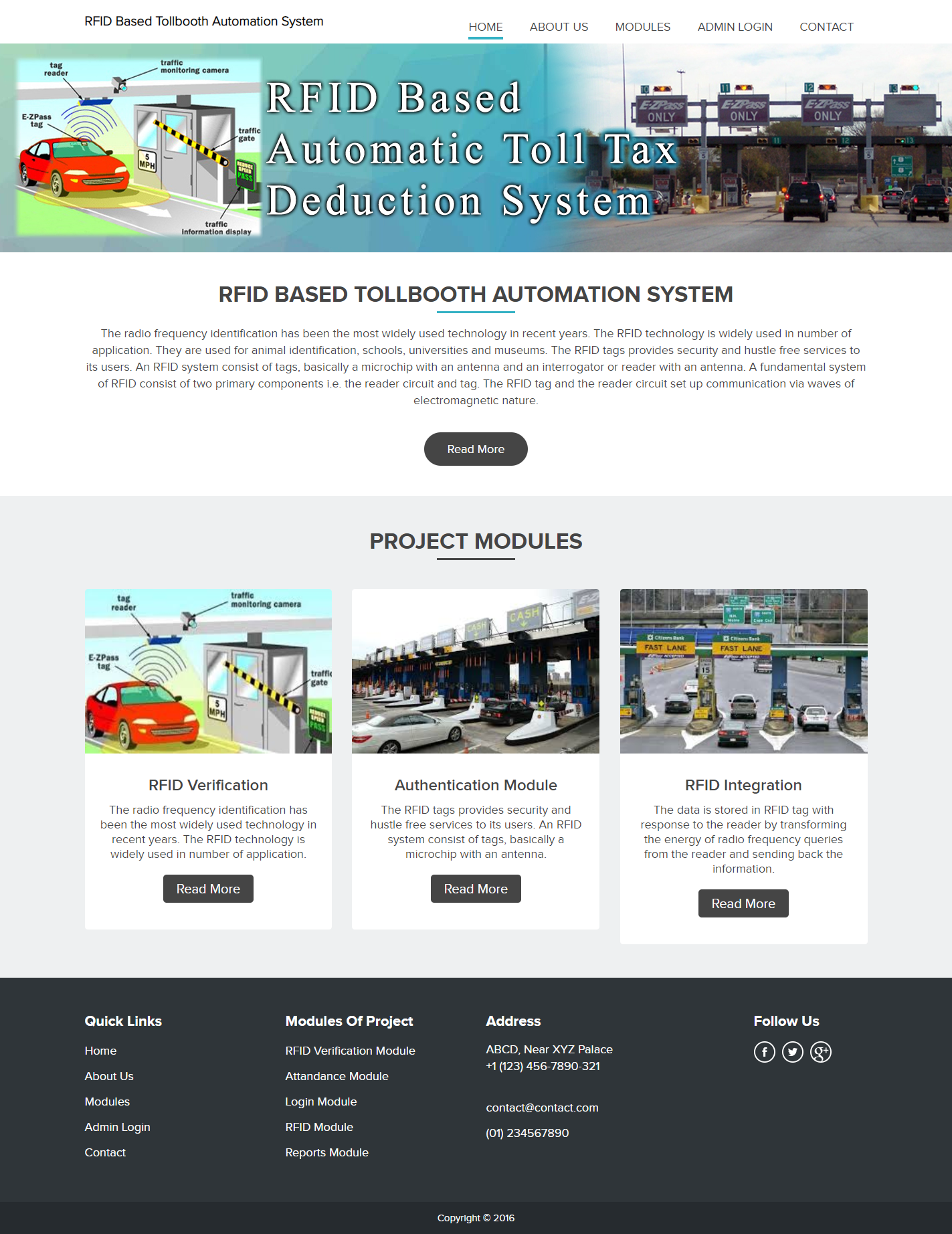Description
Automating Toll Booth Operations with RFID Technology
Transportation plays a crucial role in the economic development of a country, connecting markets, industries, cities, and facilitating growth in various sectors. However, manual toll booth processes can be time-consuming, leading to delays for drivers and a decrease in revenue due to potential corruption. To address these issues, the implementation of an automated toll booth system using RFID technology can streamline operations and reduce human interference.
The RFID-based toll booth automation system involves assigning RFID card tags to vehicles, which are read by RFID reader sensors installed at toll booths. These sensors are connected to the internet through IoT kits to automate toll collection and deduct toll fees directly from the driver’s bank account linked to their Aadhar card. Once the RFID card is validated, the toll gate opens automatically, allowing the vehicle to pass through.
By implementing this RFID-based automation system, toll booth processing time is reduced, and instances of corruption are minimized. Additionally, the system can enhance security by integrating CCTV cameras at toll booths to monitor and record vehicle movements. This footage can be used by law enforcement agencies to track suspicious activities or individuals, leveraging image and video processing tools for efficient surveillance.
Technology Used in the RFID-Based Toll Booth Automation System Project
Software components used in developing the user interface for the RFID-Based Toll Booth Automation System:
- Embedded C Language: Coding for hardware interfaces
- PHP: Business logic and web interface development
- MySQL: Database management
- Apache 2: Server hosting the web interface
- JavaScript: Form validations and animation effects
- jQuery Library: Utilized for various functionalities such as calendars



